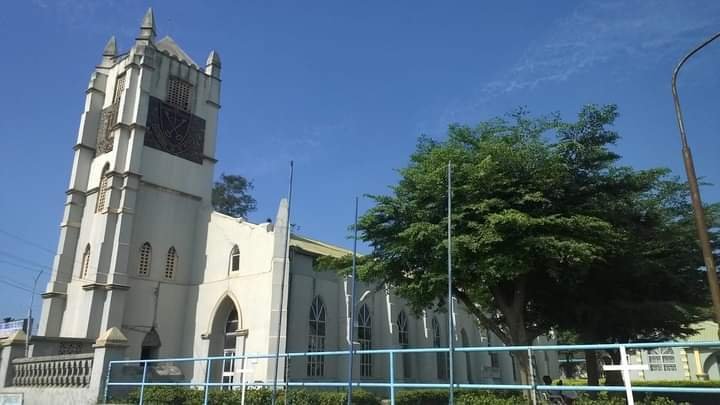The first church in Nigeria holds a legacy that resonates with the nation’s history. Established in the early 19th century by the Church Missionary Society, this significant landmark served as a beacon of hope and faith during a time of great change. Expanding its influence across the region, the first church in Nigeria played a pivotal role in shaping the country’s religious landscape. Join us on a journey back in time to explore the origins and impact of this historical institution.
The Fascinating History of the First Church in Nigeria
Welcome, curious minds, as we embark on a journey through time to unravel the story behind the first church ever established in Nigeria. Prepare to be immersed in a tale filled with courage, faith, and resilience, shaping the religious landscape in this vibrant African nation.
The Arrival of Christianity in Nigeria
The roots of Christianity in Nigeria trace back to the 15th century when Portuguese missionaries first set foot on the shores of this land. The desire to spread the teachings of Christ led to the establishment of various missions along the coast, gradually making their way inland.
As the message of Christianity spread, it found fertile ground among the diverse tribal communities that inhabited the region. The traditions and beliefs of these communities intertwined with the new faith, giving rise to a unique form of Nigerian Christianity.
The Birth of the First Church
It was amidst this cultural tapestry that the seed of the first church in Nigeria was planted. In the early 19th century, a group of pioneering missionaries from the Church Missionary Society (CMS) arrived in what is now known as Badagry, a bustling town in present-day Lagos State.
These missionaries, undeterred by the challenges they faced, were driven by a deep sense of calling to bring the message of salvation to the people of Nigeria. With unwavering faith and determination, they set out to establish a church that would serve as a beacon of light in the midst of darkness.
The Genesis of Religion in Nigeria
The journey towards building the first church was not without its obstacles. The missionaries encountered resistance from local rulers, skepticism from the populace, and the harsh realities of unfamiliar terrain. However, their steadfast commitment to their mission propelled them forward.
Through perseverance and patience, the foundation of the first church in Nigeria was laid. The humble structure, constructed with local materials and adorned with symbols of both the old and the new faith, stood as a testament to the harmonious blend of cultures that defined Nigerian Christianity.
The Impact of the First Church
As the first church in Nigeria began to take root, its influence spread far and wide. The teachings of love, compassion, and forgiveness preached within its walls resonated with the hearts of the people, transcending linguistic and cultural barriers.
The church became a hub of community life, offering not just spiritual guidance but also educational opportunities, healthcare services, and a sense of belonging to all who sought solace within its embrace. It became a symbol of hope in a time of turmoil and uncertainty.
The Legacy of the First Church
Today, the legacy of the first church in Nigeria lives on in the countless churches that dot the landscape of this diverse nation. Its humble beginnings have blossomed into a rich tapestry of faith traditions, each bearing the imprint of those pioneering missionaries who dared to dream of a brighter future for Nigeria.
As we reflect on the remarkable journey of the first church in Nigeria, let us be inspired by the resilience and determination of those who paved the way for Christianity to take root in this land. May we continue to build upon their legacy, fostering unity, compassion, and love in our communities.
In conclusion, the story of the first church in Nigeria is a testament to the transformative power of faith and the boundless potential of human endeavor. It reminds us that even in the face of adversity, we have the capacity to create something beautiful and enduring.
As we look towards the future, let us carry the spirit of those early missionaries in our hearts, embracing diversity, fostering understanding, and spreading the message of love to all corners of Nigeria. The first church in Nigeria may have been a humble structure, but its impact continues to resonate through the ages, shaping the religious landscape of this vibrant nation.
History of Christianity in Nigeria (HOCIN) – Part 1
Frequently Asked Questions
When was the first church established in Nigeria?
The first church in Nigeria was established in 1842 by Henry Townsend, a missionary from the Church Missionary Society (CMS).
Which denomination founded the first church in Nigeria?
The first church in Nigeria was founded by the Church Missionary Society (CMS), which was a part of the Anglican Church.
Where was the first church in Nigeria located?
The first church in Nigeria was located in Abeokuta, Ogun State, specifically at the site known as St. Peter’s Cathedral.
Final Thoughts
The first church in Nigeria holds a significant place in the country’s history, marking the introduction of Christianity. Its establishment paved the way for the spread of the faith across the nation. Today, the first church in Nigeria stands as a symbol of enduring faith and cultural heritage. Its legacy continues to inspire generations and serves as a reminder of the importance of religious diversity in the country.




